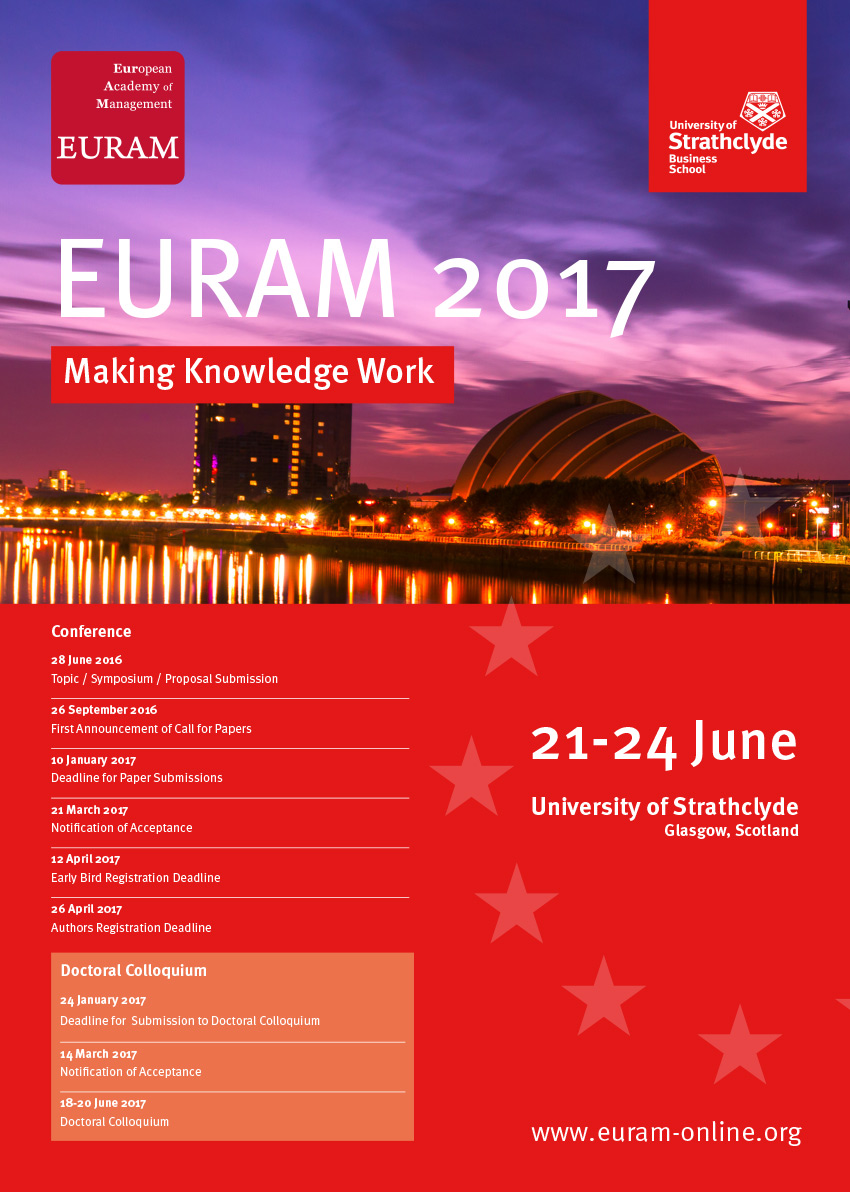The Business for Society SIG is dedicated to research and educational programmes that analyse the conditions under which business can (or actually does) interact positively with its social and natural environment. The objective of our SIG is to bring together scholars from various fields of social sciences (management, law, sociology, economics, political science, education, social psychology, history, philosophy, engineering, etc.), while sharing a common interest in B4S projects. We try to build a strong community of engaged scholars by:
- Exploring ways and methods, of identifying actors, business models and contexts which allow organisations to contribute to sustainable development, and
- Fully grasping the ambiguities, contradictions as well as the potential for innovative and transformative practices of this approach.
SIG Officers :
Jérôme Méric (Université de Poitiers, France) jThis email address is being protected from spambots. You need JavaScript enabled to view it., SIG Chair
Corinne Vercher (Université Paris 13, France) This email address is being protected from spambots. You need JavaScript enabled to view it. SIG Programme Chair
Francesco Gangi (Second University of Naples) This email address is being protected from spambots. You need JavaScript enabled to view it. Chair of the General Track
Rémi Jardat (ISTEC, France) This email address is being protected from spambots. You need JavaScript enabled to view it., Past SIG Chair
Asmaé Diani (Université Paris Est Créteil, France) This email address is being protected from spambots. You need JavaScript enabled to view it. Communications Officer
GT 01_00 Business for Society General Track
The Business for Society General Track aims at analysing under which conditions organizations can interact positively with their social and natural environment. B4S community is expanding, as confirmed by the number of papers submitted in the last conference. Consistently with the interdisciplinary nature of this field of study, colleagues from economics, management, political sciences, sociology, etc. are developing the debate on the ways, methods and new initiatives that allow organizations to contribute to a sustainable development. Therefore, the sharing of continuous knowledge creation from business and academy is the objective of our general track, in line with the scope of EURAM 2017: “Making Knowledge Work”.
The general track is specially devoted to contributions that are not explicitly covered by other tracks within the SIG.
BUSINESS FOR SOCIETY SIG STANDING TRACKS
ST 01_01 Accounting, Finance, Reporting and Control for Society
We aim to attract papers which critically review and advance theorizations and methodological applications in the study of accounting, finance, reporting and control for society (i.e. sustainability and CSR), highlighting the relevance of different theories and research approaches, as well the potential richness of this stream of research for both sustainability and accounting and finance studies. We would like also to explore different research methods, and various types of organizational settings and practices in different countries.
Sustainability accounting plays a central role in the implementation of the sustainability strategy, and developing relationships with stakeholders. It comprises accounting practices and mechanisms devoted to measure, represent and communicate the company’s performance and which embrace environmental, social and economic aspects and their relationships. However, it appears that we know still little about the integration of sustainability into management control and its uses for strategic management. It also seems that theory and practice have devoted little attention on questions of how to embed sustainability and CSR in management control systems (MCSs) and performance measurement systems (PMSs) and reporting in order to align business strategy and sustainable strategy, and the role of AFC department(s). Another area of interest is sustainability/CSR disclosure and reporting which has become a prominent phenomenon in practice. Integrated reporting, materiality matrix, quality and assurance of disclosure are becoming very relevant issues. Finally, how alternative sources of financing and investment mechanisms can create socially responsible and economically sustainable models of value creation is a relevant issue, along with which types of enterprises and organizations (e.g. social enterprises, hybrid organizations) are likely to create and capture value at the top at the bottom of the social pyramid.
The track is carried out in collaboration with the Environmental Management Accounting Network Europe (EMAN EU).
BUSINESS FOR SOCIETY SIG 2017 TRACKS
T 01_06 Rethinking the Form, Governance & Legal Constitution of Corporations’ Theoretical Issues & Social Stakes (Co-sponsored by CORPORATE GOVERNANCE SIG-02)
Contemporary social and environmental challenges call for a rethinking of the forms and models of the business corporation. The field of management research has focused a lot on how to curb corporate behaviour and how stakeholders matter. But it has usually considered as given for entrepreneurs the possible forms, the governance and the legal constitution of the firm, while the diversity of corporate models is continually expanded both by companies and by laws. This topic encourages work that examines our current theories of the corporation, extends our knowledge on alternative and emergent forms of business companies, and suggests new foundations for future governance.









